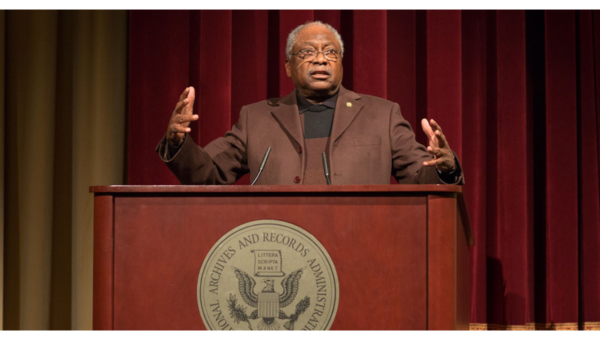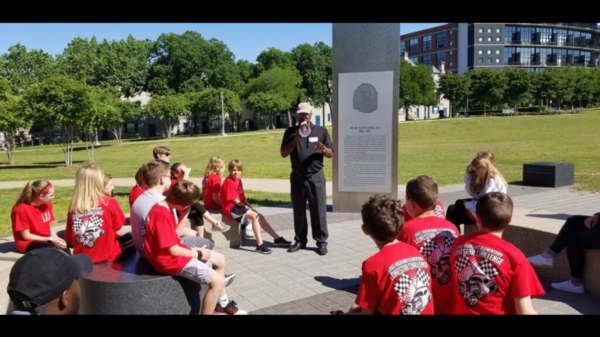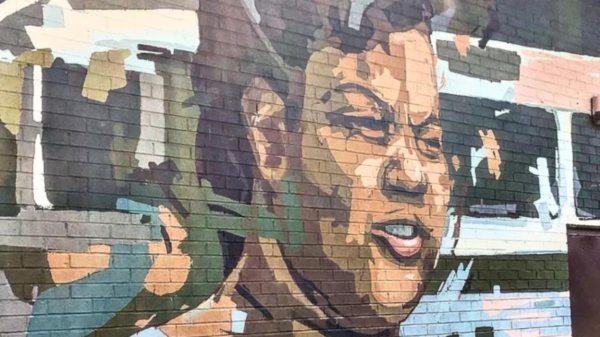
By Aswad Walker
Houston native Claude Cummings Jr. is not new to making history and standing up for the rights of workers. And it looks like he is far from done being in the middle of the ongoing battle for workers’ rights, as Cummings is literally leading the battle on the national front as president of the Communications Workers of America (CWA), the first Black person in that position in history.
Cummings Jr. was elected president of the CWA, one of the nation’s largest unions, by delegates to the union’s 79th convention on July 10, 2023. Before taking on the organization’s top leadership position, Cummings led the 50,000 members of CWA’s District 6, which includes Texas, Missouri, Oklahoma, Kansas and Arkansas. The CWA, in total, represents between 600,000 and 700,000 workers in private and public sector employment in both the U.S. and Canada.
The Defender spoke with Cummings about the significance of his election and his vision for making unions and worker rights stronger and more secure moving forward.

DEFENDER: Who and what is the CWA?
CLAUDE CUMMINGS JR.: The CWA is a truly amalgamated union that represents different sectors of labor in the country. We represent members in the United States, Canada, Hawaii, as well as Puerto Rico. We represent telephone workers, technicians and other titles that work for AT&T, Verizon, Frontier, CenturyLink, for what we call Legacy T. We represent members in the airline industry and the manufacturing industry, in the news guild, passenger services, just a number of public sector workers. Those workers who work for state governments around the country; are just a number of different organizations that have CWA members in them.
DEFENDER: What does CWA do for workers?
CUMMINGS: It’s our responsibility, of course, to bargain the contracts in the private sector, as well as do everything that we can to make sure our public sector employees have good pensions, good benefits and good wages. In many areas, especially in the South, the public sector is not organized, but we still do what we can to represent them in what we call “meet and confer” type meetings where they don’t have a union contract, but we still have the ability to speak for them in the workplace.
-Claude Cummings Jr.
DEFENDER: What does the general public not know about unions that they should know?
CUMMINGS: Unions built the middle class in this country. My father started as a janitor for AT&T back in 1946, when African-American men could do nothing but janitorial work for AT&T. During the late sixties, and early seventies, after the consent decree that forced AT&T and other companies to start moving women, African Americans and others in different positions, our lifestyle changed. I had good healthcare. My father had a good living. Were we rich? No, but we were comfortable. My father owned a home, and drove two cars, and there weren’t many families that could afford that. It was because he was on a union job. That’s what unions are about. Unions built the middle class in this country. So, my fight today is to make sure everyone understands that you are better off if you are in a unionized job.
DEFENDER: How is that message being received, especially in the Black community?
CUMMINGS: It’s being heard. As a matter of fact, during this period right now, the time that we are in right now, more young people are interested in becoming part of a union than ever before. In my district, before I was elected to this position, we organized the first Apple store. And Apple fought fiercely against those workers organizing, but we won there. In places all across this country, young workers are beginning to speak out. The young man up north who organized the Amazon center, a young man who actually worked in there, who saw the conditions and everything that was taking place, was able to organize that group, even though they don’t have a contract yet. But the fact is, they are a unionized workforce there.
DEFENDER: Are young adults fully understanding the significance of this moment for workers?
CUMMINGS: So, young people are understanding clearly. During the downturn of the economy several years ago, young people saw their parents suffer through surpluses, and they saw them suffer having to try to bring home enough money for them to live on. And they understood clearly that CEOs during that period of time were making more and more and more money, and not sharing it with those who helped make that money. This is what the strike is about with the [Hollywood] writers and the actors. People probably think that all those actors and writers are filthy rich. But I found out since talking with some of them, that they can barely make ends meet. Some of them are working two and three jobs just in order to live comfortably. As a matter of fact, if they don’t write or if they don’t participate in some type of work activity during the week, they’re in danger of losing some of their healthcare. Just the idea now that we have this artificial intelligence where their likeness can be used in a way that does not profit them is absolutely wrong. And that’s why more and more young people now are beginning to speak out because they see clearly that CEOs and businesses are getting rich off of the backs of those who are making them that money, and they are ready to be able to fight to get their share of what these CEOs are making.
[Young people] understood clearly that CEOs during that period of time were making more and more and more money, and not sharing it with those who helped make them that money.
-Claude Cummings Jr.
DEFENDER: How does your fight for workers’ rights differ in a state like Texas and other states that have been so anti-union as opposed to states that have been more supportive of unions?
CUMMINGS: To be quite honest with you, it doesn’t differ much other than that I’m in charge now. I’m the man. The buck stops with me now. That’s the biggest difference. The fight is still the same. It makes no difference whether you’re in a right-to-work state [states where a person cannot be denied employment because of membership or non-membership in a labor union or other labor organization; usually viewed as anti-union states] or you’re in a state that’s a closed-shop state [states where places of employment require current membership in a specific union as a condition of employment]. I mean, the idea of fighting for workers, making sure that every worker, whether they’re in a union contract or not, is represented and we speak out on the fact that they get good wages and good benefits.
DEFENDER: Can you give an example?
CUMMINGS: A good example of that is in Mississippi now. We are working to organize a call center called Maximus. And they actually have sites across the country. In those units, about 10,000 of them across the country are African American women. And Maximus is a federally-owned call center. Maximus actually works for the U.S. government. Those employees are basically African-American and Latino women who are underpaid and have horrible working conditions and CWA is working to organize them. CWA is all about organizing. CWA is about making sure workers know that they have a right to organize, to build worker power on the job, so they’ll have a voice in the workplace. And so that fight continues, whether it’s in the south or whether it’s in the north, the east or the west. The idea is to get workers to understand that their living conditions, their working conditions are better if they’re in a union contract. Simple as that.









You must be logged in to post a comment Login